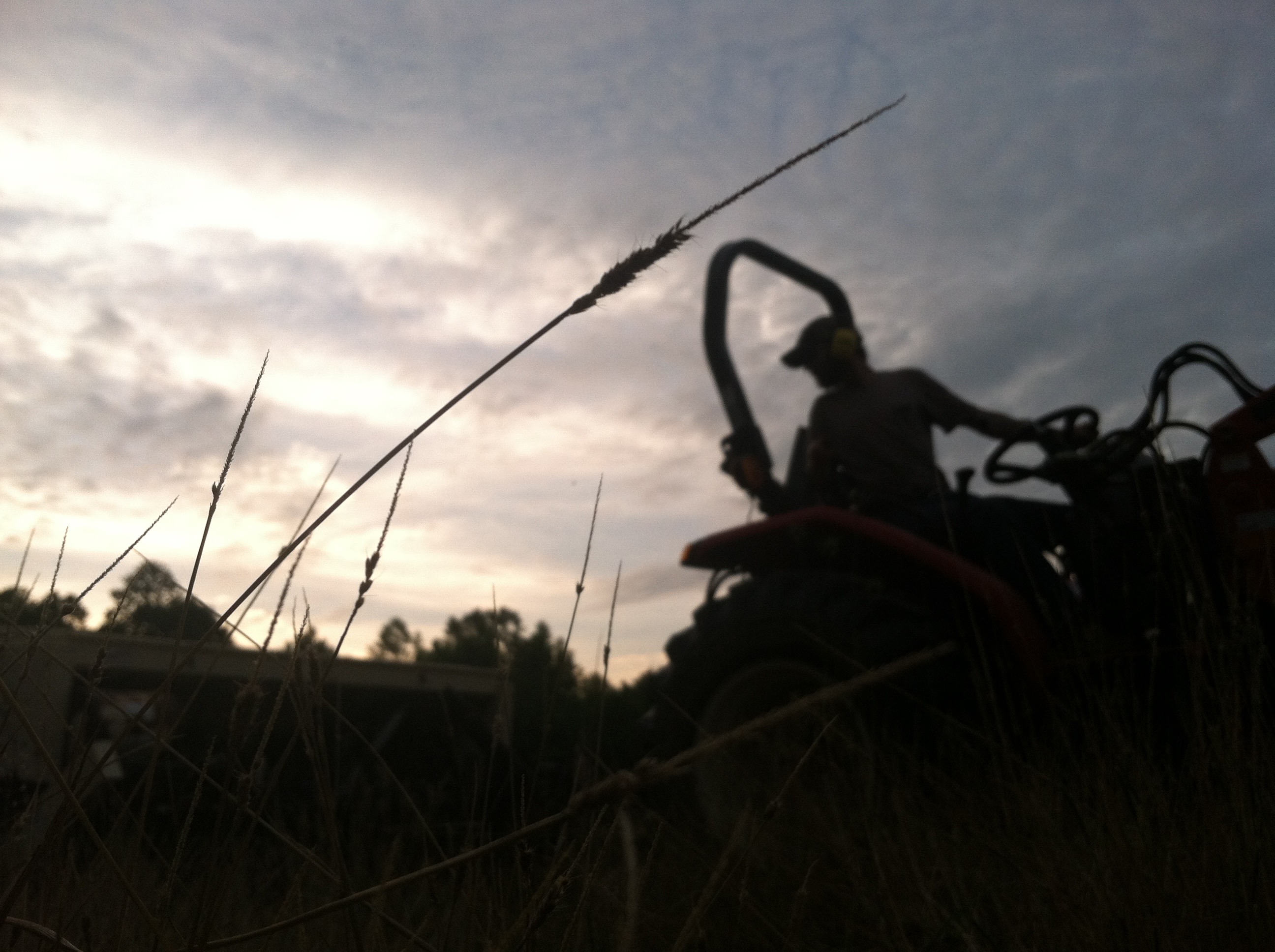By Nate Brownlee, Nightfall Farm
I didn’t grow up in a farm family, and, in fact, I was pretty sure that I would not grow up to be a farmer. As such, there are many aspects of my now-daily life that I constantly need help to accomplish. There are numerous great resources with how-to information, ranging from websites to books, and Extension educators to agricultural groups. The easiest for me to fully utilize and learn from, however, are my peers and fellow farmers.
This is on my mind this month because of the topic of land transition. You don’t have to look far through the Farmers Union newsletters (or most any agriculture-related publication that I read) to find talk of the scale of our country’s impending land transition. Around here (and I know we’re not unique), you don’t have to look to the written word to realize that truth. Liz and I are not surrounded by a lot of young farmers, and those young farmers who are in our area are managing a fraction of the acres that are in production.
Now when I connect those dots between land transition and learning, I get worried about my ability to successfully farm for the rest of my life. Fortunately for me, land access is not one of the factors holding back the success of our farm. We are lucky enough to be farming on family land, and the long-term plan is for us to steward this land.
My concern comes in three categories: loss of knowledge and experience, the diffuse nature of my farming contemporaries, and fear for the hindered influx of new farm entrepreneurs in our area.
I want to focus on the loss of knowledge and experience. For instance: we were having tractor problems last month. We don’t know our way around tractor repair (though our first year of owning a 40-year-old tractor is great inspiration to start learning), and so we asked some friends for help. We have two friends who have returned to the family farm, and they have substantially more acreage and tractors than we do. They also have the advantage of a multigenerational farm, and the benefit of the maintained knowledge and experience is obvious to this outsider.
The patriarch of the family, Butch, came over to work on the tractor with me for a couple of hours. Over the course of that time, we were talking about skills that I have picked up (like backing up a livestock trailer), areas in which I hope to improve (like backing up a trailer that does not have a fixed tongue), and tasks I have never had the opportunity to experience (what a list this would be!).
With a sly smile, Butch told me a story. Growing up, his dad always said that it took 22 years of doing something to really get a handle on the task. Obviously, this stuck with Butch as, years later, he was now passing on that wisdom to me. I wasn’t the only one who had heard the story, though: Butch’s daughter (and our friend) is a big fan of this story. Butch said that she frequently reminds him of the need for 22 years of experience. She had left the farm for a while, returned with her husband to join in the farm work and she is keenly aware that they don’t have their 22 years of experience yet. She’s clear with Butch: They need him around and helping for the next dozen or so years until they have a handle on things.
I think that’s a sweet story, and it did reassure me that time and repetition will increase my skill sets while also reminding me that I’m not the only one out there who wishes they were magically an old hand at their chosen career. I know that 22 years is not a scientifically derived number, and but my point is simply to recognize the accumulation and value of experience.
It also made me realize what we are missing. Liz and I came back to the family farm, and while it has barns, fields and forests—it doesn’t have the “institutional knowledge” of place, of task, of way of life. This is true for most new farms across the country as their stories are beginning. We have learned a great deal since year one of our farm, but I suspect that we’ll keep needing guidance and help to feel capable for many years to come. That’s definitely true this year!
Which brings us back to land transition. It’s amazing when family land and a farm business continue through the generations. It’s also increasingly uncommon. Which around here often means that the transitioning acreage is consolidated into bigger farms (which for my purposes is bad because often that means the farmer may not have the flexibility of schedule to come work on a tractor with me for a couple of hours, and to talk while doing it). The land also might go into development (which means there is no need for a farmer at all). All of this spurs me to take the opportunity to say thanks to those older farmers in our community who will trade time, knowledge and tools in exchange for gratitude, and sometimes cookies.
This blog is part of a series hosted by Indiana Farmers Union. We post a blogs written by Hoosier farmers at all stages—from just beginning to long-established. If you’re an Indiana Farmers Union member and are interested in writing for us, please contact Sherri Dugger at sdugger@nfudc.org.


